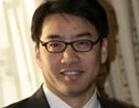2014年达沃斯夏季论坛 – 新领军者年会(World Economic Forum 2014 – New Champions) 于9月10-12日在天津举行,中国国务院总理李克强出席本次论坛并致开幕辞。来自全球90多个国家与地区的超过1600位企业、政府、学界的嘉宾参加了本次论坛。北京大学政府管理学院傅军教授应邀出席了会议。本次论坛的主题为“推动创新、创造价值”(Creating Value through Innovation)。
早些时候傅军教授收到达沃斯论坛创始人兼执行主席克劳斯·施瓦布(Klaus Schwab)的聘任函,聘任其连任新一届全球议程新增长委员会(Global Agenda Council on New Growth Models)副主席,聘期为两年,该委员会由全球19位政界、企业界、学术界领袖组成,委员会主席由诺贝尔经济奖得主迈克尔·思宾塞(A Michael Spence)教授担任。与新增长模型所涉及的高效率、包容性和可持续性议题相关,傅军教授以国际比较的视野向与会成员介绍了中国今后城镇化道路的前景和挑战,题目为“处在十字路口的中国城镇化”(China’s Urbanization at Cross-road)。
以下是傅军教授的文章内容:
China’s Urbanization Drive at Cross-road
Cities, the dense agglomerations that dot the globe, have been a hotbed of human innovations and a window of modern civilization. Historically, the streets of Florence and Venice gave rise to the Renaissance, and the streets of Birmingham and Manchester gave rise to the Industrial Revolution. Not surprisingly, there exists a strong statistical correlation between prosperity and urbanization. Productivity gains when labor moves from under-employment in low-productivity agricultural sector to full employment in higher-productivity industrial sector. Research suggests that cities are the engine of growth also because of scale economy, and that, perhaps more fundamentally, enhanced human capital in the form of “knowledge accumulation” in urban density not only leads to improved worker skills but also to more creative ideas. Not surprisingly either, in China today as in many other industrializing countries, cities are expanding enormously because they provide the clearest path from poverty to prosperity for many poor peasants.
